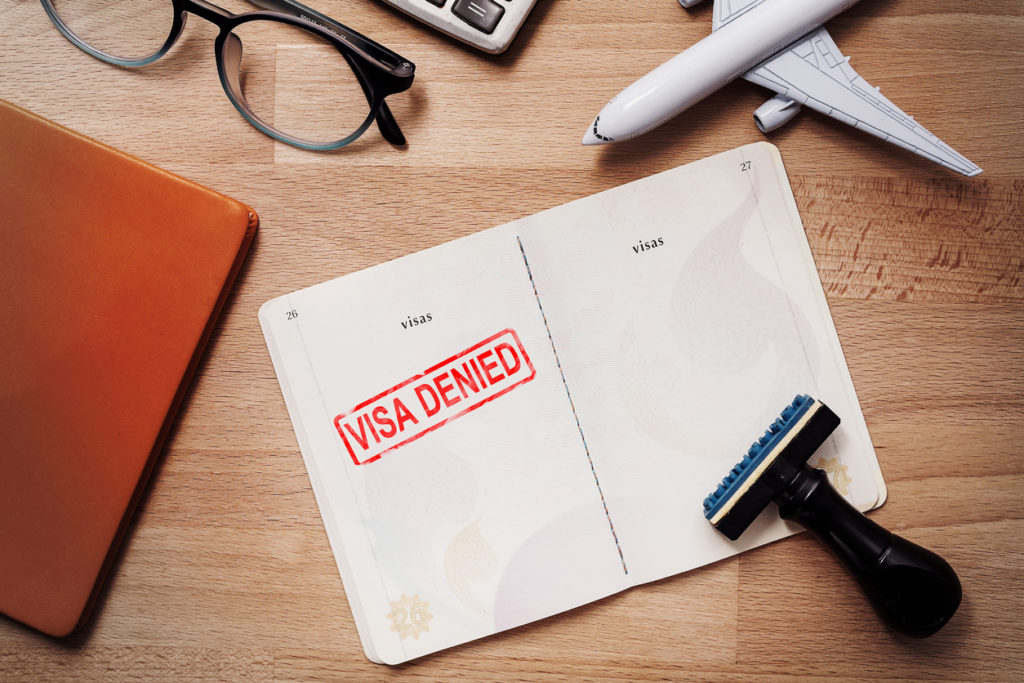
According to information from IRCC, about 30 percent of all study permit applications are refused. Since studying in Canada is so popular, tens of thousands of prospective students who have been accepted to a Canadian school still have their study permit applications refused.
What Can I Do If My Study Permit Application Is Refused?
If your study permit application is refused by IRCC, there are two courses of action you can take:
1. Ask for reconsideration, or;
2. Address the reason(s) it was refused in a new application.
To be successful either way, you first need to understand why your application was refused. You can also request access to the notes the visa officer reviewing your file made, to get a better idea of how to address the concerns brought up.
5 reasons why your study permit can be refused
1. IRCC questions your ability to financially support yourself
When you submit a study permit application, you need to demonstrate that you have enough money to pay for the trip to Canada, pay your tuition fees, and support yourself and any accompanying family members while you are studying.
This is called “show money”. Usually, the government asks for six months of bank statements that show that you have enough show money. If the government doesn’t believe that you have enough money to support yourself and your family in Canada, they could refuse your application.
How to address a problem with show money:
If your application is refused because IRCC questions your ability to financially support yourself, you should carefully review the financial documents you submitted with your application. Make sure that you address the concerns raised by the visa officer and submit additional documents to prove that you meet the show money requirement.
2. IRCC questions whether you will leave the country after your studies
A study permit is a temporary visa, which means that it has a validity period and an expiration date. In your study permit application, you need to convince the visa officer that you will leave the country when your study permit expires.
That does not mean that you cannot apply to extend your study permit, or stay permanently. In fact, there are many programs designed by the government to help students stay and work in Canada following their studies, or transition to permanent residence.
What it means is that the visa officer has to trust that you will not stay in the country illegally when you are out of status. Usually, this is a problem if you do not demonstrate that you sufficient ties to return back to your home country
How to address a problem of intent:
Usually, the only way to address this concern is in your personal statement. If the visa officer is not convinced with the narrative you’ve provided them, you need to rework your statement to try to address their concerns directly.
3. IRCC questions your choice of program
Study permit applications are sometimes refused if the visa officer does not understand the logic of your choice of program. Someone with a bachelor’s in nursing from the Philippines and four years of experience working as a nurse who wants to study hotel management, for example, could be questioned. If the chosen program in Canada does not seem to align very well with the applicant’s educational background or employment, there is a strong risk of refusal.
How to address a problem with choice of program:
If your choice of program seems odd, given your past education or work experience, you need to clearly explain why you want to study it in your personal statement. This is another case where seeing the visa officer’s notes can really help.
4. IRCC questions your letter of acceptance
Before you can apply for a study permit, you must receive a letter of acceptance from a designated learning institute in Canada. The school that issues your letter of acceptance must be a registered Canadian educational institution. You also must meet all program requirements. If the visa officer doubts that your letter of acceptance is genuine, or that you have not actually met the program requirements, he or she might refuse your letter of acceptance.
How to address a problem with your letter of acceptance:
Review the school documents that you submitted. Make sure that all of the documents are clear and easy to read and provide any additional supporting documents that you can.
5. IRCC questions your travel or identity documents
If you do not have a complete record of your travel history, or if your identity documents are unclear, IRCC may refuse your study permit application. IRCC must be able to identify if you are medically or criminally inadmissible to Canada.
How to address a problem with travel or identity documents:
If the visa officer thinks there are blank spaces in your travel history, review the documents you are submitting, and the visa officer’s notes to find what time periods are problematic. When you re-apply, be sure to include additional supporting evidence to cover these periods.
If the problem is with your identity documents, review your application to make sure that they were clear and easy to read.




